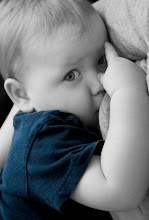Is postpartum due to not breastfeeding?
Aug 14, 2009
By: Jeff Ryan
Contemporary Pediatrics
Postpartum depression has been linked to choosing bottle feeding over breastfeeding, according to an evolutionary psychologist's research.
The fields of evolutionary study goes beyond how birds got their wings. Evolutionary psychology, one subfield, tries to understand humanity’s instinctual actions based on a long view that goes back to our hunter-gatherer ancestors. And new moms, one new theory goes, may be hard-wired to go into a mourning period if breastfeeding does not follow delivery of a child.
Back then, there would be one main reason why a woman would deliver a baby and then not breastfeed: the baby had died. Untold generations of that, lead researcher Gordon Gallup posits in the August issue of Medical Hypotheses, may have imprinted a biological trigger of grief when that separation happened. It would even kick in when the baby was just fine.
This theory was tested in a small study, researchers noted. A group of about 50 mothers of 4- to 6-week-old infants were examined for postpartum depression. Age, income, relationship statues and education were not contributing factors in who was more likely to be clinically depressed. But breast or bottle was: breastfeeders were less likely to have the baby blues, as it’s sometimes derisively called.
And it’s not just choosing formula over milk that may cause the separation. Hospitals’ policies of keeping newborns in nurseries may instigate a mourning process in new moms as well, reagrdless of how they feed their newborns
Subscribe to:
Post Comments (Atom)

2 comments:
I've been saying this for a long time - It makes sense! The body tells the brain that there is no baby - it is only natural for the body to go into a mourning process.
I agree that your theory would logicaly explain post partum depression...
Because of that, I think that even if mother's choose not to breast feed that they should at least pump their breasts and/or let their partners nurse as well as NOT be seperated from their baby for as long or at least allowed, if feasable, to participate in the cleaning of the baby after birth...
Post a Comment